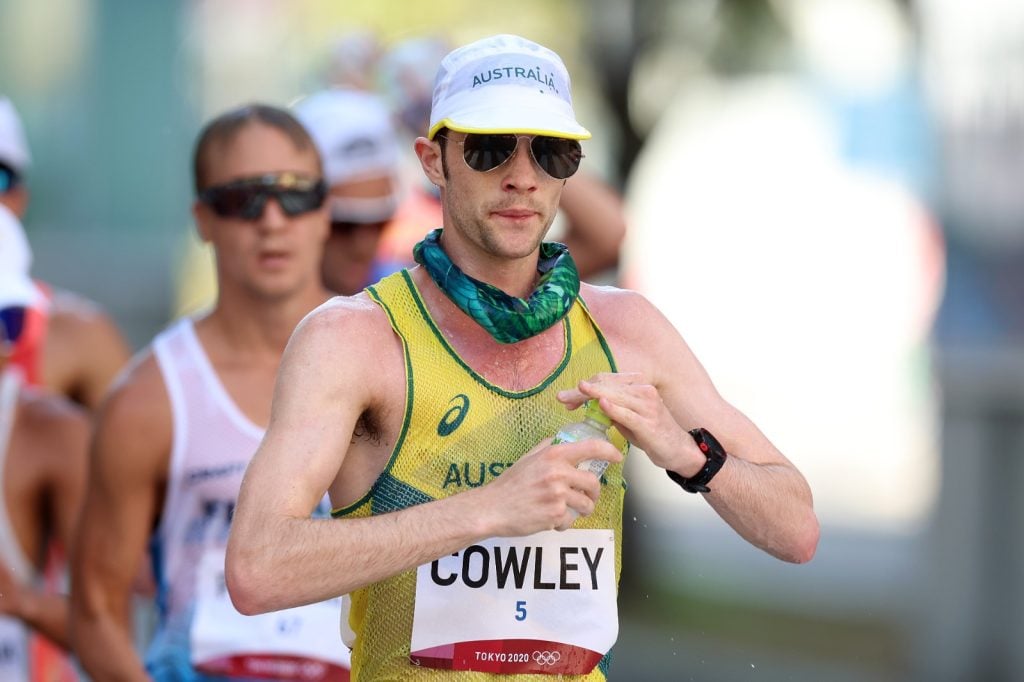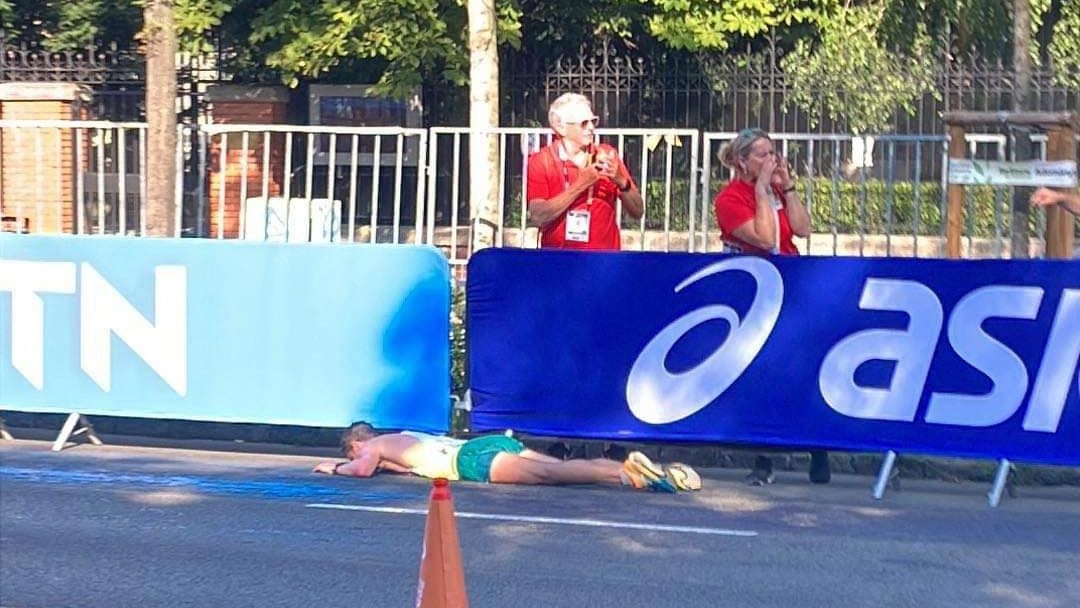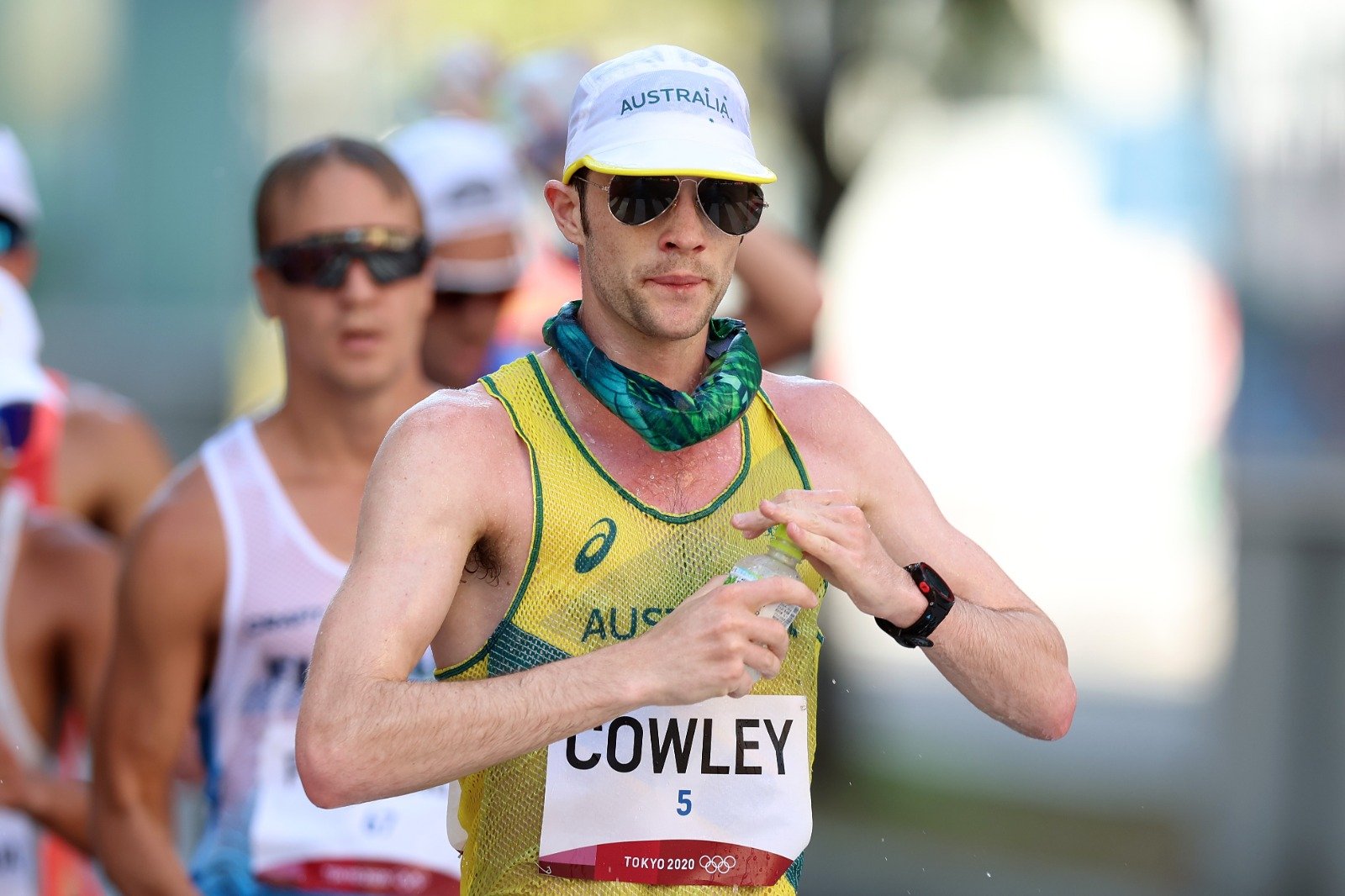As the climate emergency continues, dangerously high temperatures are having an increased impact on the Olympic Games. The recent Rings of Fire II report uncovers the risks of the climate emergency on athletes, and acts as a warning for any of us undertaking sport. Contributor and racewalking Olympian, Rhydian Cowley, unpacks the report and its key lessons.
Throughout my now-long athletics career, I have become used to racing in hot, uncomfortable conditions at major championships – toughest of all being 2019 at the Doha World Athletics Championships. Preparation for hot weather racing is a standard part of my season, and has been for many years, however that alone is not enough to ensure safety.

In 2023, the Budapest World Athletics Championships was held in the middle of a heatwave. During my 35km walk event there, I suffered heatstroke for the first time in my life, collapsing to the ground two hours into the race. It was no doubt distressing to watch for my friends and family on the course and back home, and something I never want to go through again. Luckily for me, and perhaps in part because of my preparation, I was able to recover and have now been selected for my third Olympic Games in Paris. I know of others not so lucky.
In 2019/2020, in Australia, I was impacted by our ‘Black Summer’ bushfires, like so many Australians. The air was so thick with smoke in some cities that smoke alarms went off inside buildings, and training outside required checking the air quality first, lest the toxic mix of incinerated trees and animals in the air impact our health. These events brought home to me that our lives, and our sports, are already being impacted by climate change. It drove my motivation to use my modest platform as an athlete to do what I can for action on climate change – including contributing to the recent Rings of Fire II report, published on June 18th.
A global problem
Published by the British Association of Sustainability in Sport (BASIS) and FrontRunners, the 2024 report follows on from the 2021 Rings of Fire report into how heat could affect the Tokyo Olympics. It brings a focus on athletes’ experiences of extreme heat, as well as exploring the relationship of sport to this increasing heat and corresponding risk of extreme weather events; that is, how fossil fuel sponsorship in sport helps advertise and provide social licence for the very thing driving climate change and threatening the future of sport.
Paris has warmed by over 3°C in the 100 years since it last hosted the Olympics. With 2023 certainly the hottest year in over 2000 years, 2024 on track to be hotter still, extreme heat is rightly a key performance and health concern for athletes, officials and spectators at the upcoming Olympics and Paralympics. The recent heat waves in northern India, and in Saudi Arabia for Hajj pilgrims is yet another warning bell.
A key motivation for the creation and timing of this report was the huge cultural importance the Olympics still has for much of the world. Sport has a great capacity to influence people – which is why we see so much fossil fuel sponsorship around. While it is easy to see regular news of climate-charged extreme weather and feel despondent, sport has the capacity to cut through the bullshit, and deliver not only the truth about the climate crisis, but also empower athletes and fans to take action on an individual and collective level.
The experiences of the other athletes who contributed to the Rings of Fire report underscores that the impacts of extreme heat are not just limited to endurance events like my own. In particular, it was upsetting to read the impact of the 2019 World Championships in Doha on fellow racewalker Yusuke Suzuki, who continues to be impacted by its aftermath to this day.
Key findings of the report
The report had five key recommendations:
- Smart scheduling to avoid heat extremes,
- Keeping athletes and fans safe with better rehydration and cooling plans,
- Empower athletes to speak out on climate change,
- Boost collaboration between sporting bodies and athletes on climate awareness campaigns,
- Reassess fossil fuel sponsorship in sport.
To their credit, World Athletics is taking action in many of these areas already, such as on scheduling – the Tokyo Games saw the walks and marathons relocated, and the women’s marathon brought forward by an hour due to the forecasted heat. They also have an Athletics for a Better World program, with many athlete ambassadors – of which I am one – contributing to the Rings of Fire report.
While some meets are still sponsored by problematic companies, athletics appears less compromised by fossil fuels than sports like football. It was refreshing for me to see the fossil fuel issue addressed head on in the report, rather than skirted around like we have seen at UNFCCC COP meetings until very recently. And as noted in the report, it is not just sports who have problematic partnerships — it is also some National Olympic Committees (NOC’s) themselves.

One key thing for athletics to continue to work globally on is athlete and fan education on keeping safe in the heat. While Australia has thorough knowledge, plans and equipment in place for its athletes to prepare with, not every country has the same resources. As extreme heat increases in frequency, this makes the game less and less fair – as well as less safe and less exciting.
It is interesting to note the recommendations focus both on adaptation and how Olympic sports can influence behaviour change. However, perhaps more important (but less scalable) are the organisational and event footprint reductions. Ironically, these are limited in many cases by systemic issues brought about by the way our world has been made dependent on fossil fuels for almost everything.
We need rapid action
The report closes by reminding us that without concerted action and a rapid reduction in fossil fuel emissions, the instances of extreme heat are only set to intensify further over the coming years, and that trajectory poses risks, not just for athletes but also for spectators, broadcasters, volunteers, support staff and construction workers building new stadia. Just recently, we saw a report on how 20% of Olympic countries are at risk of disappearing from the games due to climate breakdown.
When my own country, Australia, continues to approve new coal & gas mines, and the opposition promises to scrap our 2030 emission reduction targets if elected, it is important, and motivating, to remember that every fraction of a degree matters, every gram of Co2e not emitted matters, and even if it sometimes feels futile, our demanding climate action from our governments, organisations, and each other, matters.


